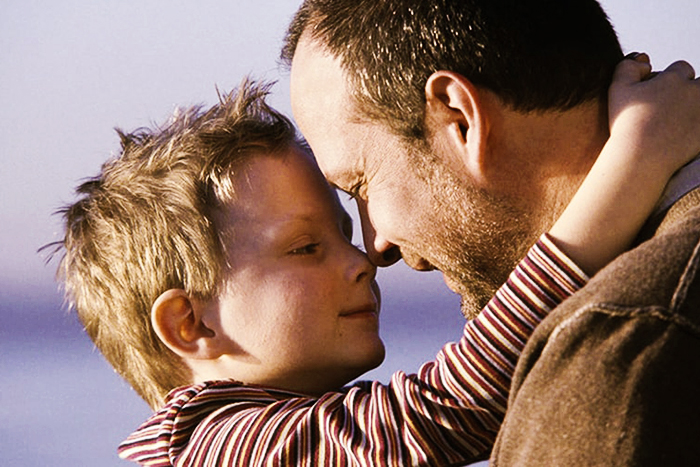
A child once told me, “Father, I would like to go to church in the morning. I really want to go.” “Great,” I tell him, “I’m happy about it.” “If I didn’t, would you be glad?” “Look,” I tell him, “I’m glad that you think I’m your friend and that you trust me. Yes, I wouldn’t be happy if you didn’t go to church, but at the same time I wouldn’t force you to. It wouldn’t be good if I came out of the royal door and blessed the people with the words “Peace to all”, knowing that you are distraught. If you want to, you may come.”
The next morning the child’s father calls me and says, “That lazybones did not go to church again. How many times do I have to remind him of this? He embarrassed us. Do you know what he did today? He went to play pool with his friends next block. He went to the cafй to play pool!”
Honestly, I was surprised, too. After a while I called the boy and asked, “Why didn’t you tell me the truth yesterday? Didn’t we agree to tell each other the truth?” “What truth? I didn’t lie to you.” “Didn’t you? Didn’t you tell me you were going to church that morning?” “I did.” “Then why did you go to a cafй to play pool instead?” “Oh, I see now. What kind of pool, Father?” “I found out that you went to play pool instead of attending the divine service.” “So they’ve already told you. Listen, this is what actually happened. I was at church, I just didn’t tell them about it. I told them in the morning that I was going out, and they started saying, ‘Nice! Going to church, huh? You’re gonna be a good man. That’s what we want.’ So they started pushing me to do it as they usually do. I had the feeling that they wanted me to go to church not so much for my own sake, but to please them. They were more excited about my going to church than about the benefit that I would receive from going to church and getting closer to God.” “What did you do?” I asked him. “Where did you go?” “I told them I was going to play pool. I went to a distant parish so they wouldn’t find me. This time I just left the house earlier.” “You’re amazing! So you did go to church?” “Yes, I did but I didn’t talk about it. I didn’t want to suffer. It’s hard for me to deal with situations like this. I want to love God in my own way and have a personal relationship with Him.” “What you are saying is true and theologically correct.” “Do you understand me? I can’t stand being dragged back and forth.”
Another kid told me the following, “Listen, Father, what happened to me. My parents were considered good at my school, and they were very well known. Their fame was a great burden on my shoulders. I had no right to make the slightest mistake because the seniors would say, “We didn’t expect this from you. A son of such a family can’t behave like that.” I can’t understand it! I mean, I had no right to make a spelling mistake or just a little mischief like other schoolchildren. Why can’t I be an ordinary kid? I have to be perfect or else I might harm the reputation of my family… One day I brought a comic book to my class, which wasn’t immoral in any way, but the teacher tore it up. The other time I brought a comic book to school again, and the same teacher took it and showed it to the whole class: “Look what this student is reading!”. She wanted to shame me.”
Maybe these things don’t seem too important and sound ridiculous. Yes, these are really trivial things. Someone will say, “What are you doing? Sitting and talking about how a teacher ripped up a comic book? There are many other problems in the world!” That’s exactly the reason: basic needs of a child were not properly met; his parents failed him. It later gives rise to emotional resentment, which then accumulates and turns into a storm of anger and fury. Not having worked it out properly with his mother (because she seems to be a big sinless giant in his eyes), the child does this to society. The society is his mother on a subconscious level, while the government is his or her father, being a street brawler is his revenge for all those whom he wanted to take revenge on but could not because he was subjected to great oppression. Yes, too much pressure to do good things. That’s the saddest part. It is also sad that whenever an older person coerces a child to do this or that, he doesn’t say, “You know what? What I’m forcing you to do is my own vision,” but they say, “It is God who tells you what I tell you. My words are God’s words.”
From Archimandrite Andrew (Konanos) book Love Forever.
Translated by The Catalogue of Good Deeds



